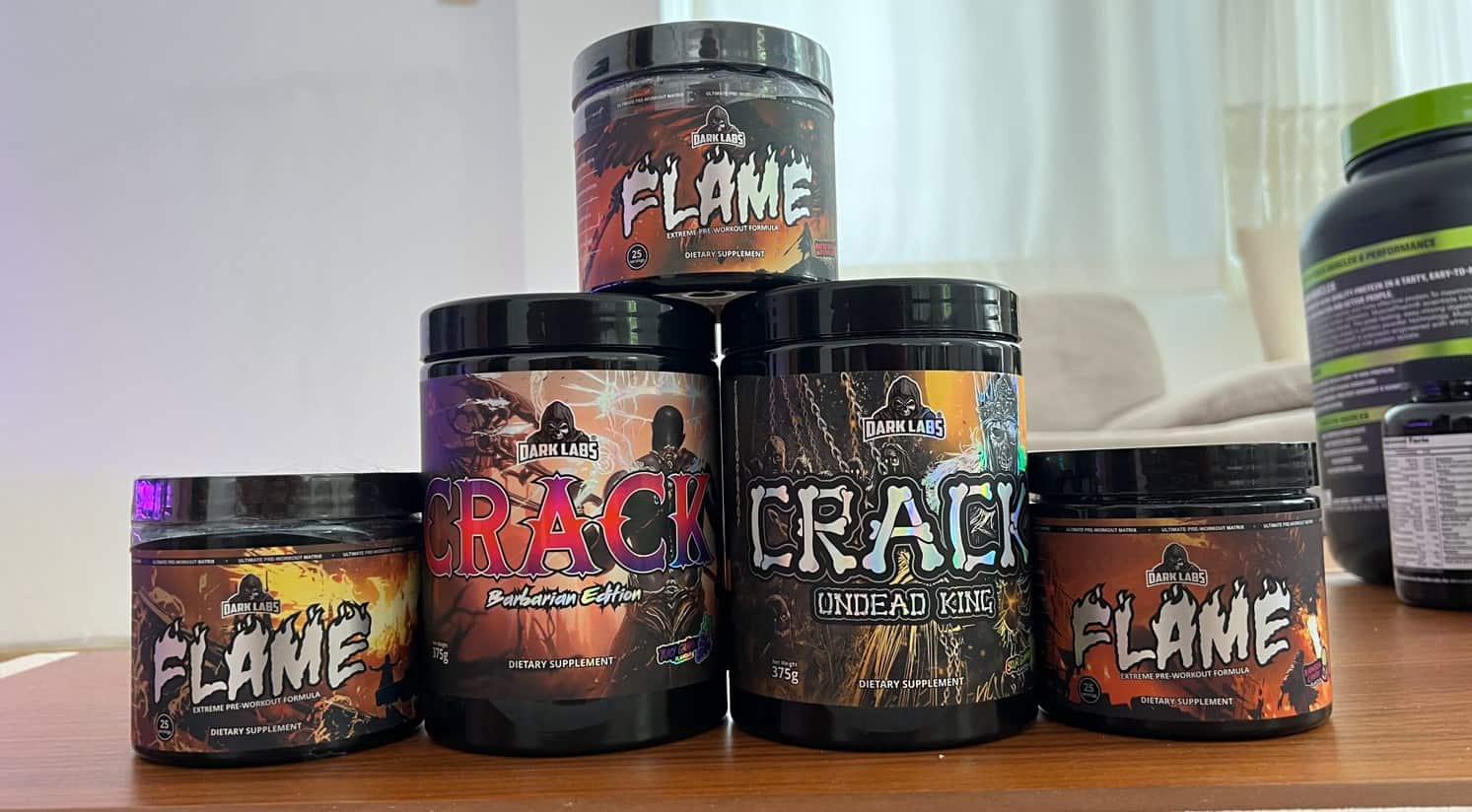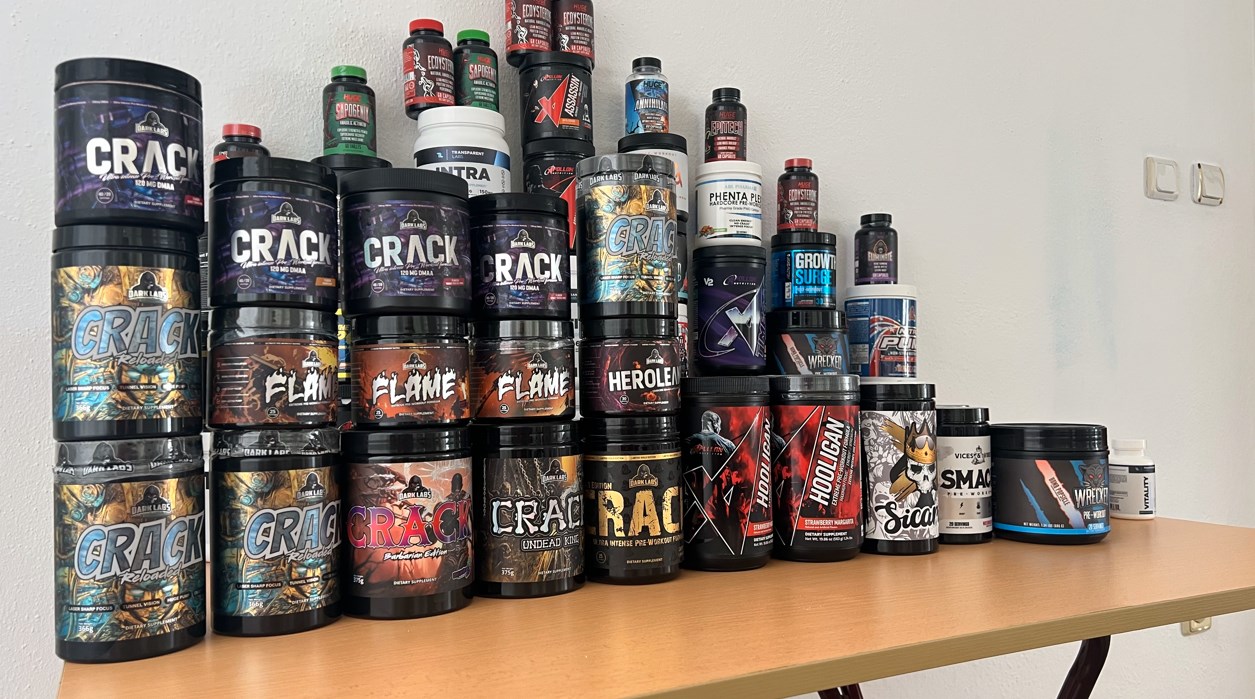
We've all been there.
You're about to hit the gym, you take your pre-workout supplement, and suddenly, you feel the urge to go to the bathroom.
It's a common experience, but why does it happen?
In this article, we'll delve into the science behind this phenomenon and answer the question: Does pre-workout make you poop?
Pre-workout is a type of dietary supplement used by athletes and fitness enthusiasts to enhance physical performance.
It's typically consumed before exercise to increase energy, endurance, and focus during a workout.
The ingredients in these supplements vary but usually include caffeine, amino acids, and other performance-enhancing substances.
Related: should you consume pre-workout on an empty stomach?
The connection between pre-workout supplements and digestion is not coincidental.
Many ingredients in these supplements can stimulate the digestive system, leading to increased bowel movements.
Like how creatine may make you poop.
But why does this happen?
Let's break it down.

Caffeine is a common ingredient in pre-workout supplements due to its ability to enhance alertness and reduce fatigue.
However, it's also a natural stimulant for the digestive system.
It can increase bowel movements by stimulating muscle contractions in the large intestine.
Beta-Alanine is an amino acid that can improve performance and delay muscle fatigue.
While it doesn't directly affect digestion, some people may experience tingling sensations and flushing, which can be mistaken for digestive distress.
Creatine is another popular ingredient in pre-workout supplements.
It can increase strength and muscle mass.
While it's not a direct cause for increased bowel movements, it can cause bloating and upset stomach in some people, especially when consumed in large amounts.
Several ingredients in pre-workout supplements have been linked to causing bowel movements.
Let's take a closer look at these ingredients:
Caffeine is a common ingredient in pre-workouts, known to boost energy levels and stimulate the nervous system.
However, studies show that caffeine can also cause an "increased desire to defecate" within just 10-15 minutes of consumption. [1]
This effect may be more pronounced in pre-workouts, which often contain higher doses of caffeine than a regular cup of coffee.
Some pre-workout supplements contain high amounts of vitamin C, which can have a laxative effect in large doses. [2]
However, the amount of vitamin C present in most pre-workouts is unlikely to cause bowel issues for most people.
B-complex vitamins, including B12, can stimulate muscle contractions in the digestive system, which can make you feel the need to "go."
If you're experiencing pre-workout poop, check your supplement label for high levels of B12 or other B vitamins.
Magnesium is known for its laxative properties, as it draws water into the intestines and stimulates bowel activity.
However, only a few pre-workouts contain significant amounts of magnesium, and the dosage is typically lower than the recommended daily intake.
While this might be an inconvenience for some, it can be a benefit for those dealing with constipation.
Regular bowel movements are essential for overall health, and magnesium can support this process.
However, it's important to note that everyone's body reacts differently to magnesium.
Some people might experience loose stools or diarrhea, especially when consuming high doses.
If you notice such effects after taking a pre-workout supplement, check the label to see if it contains magnesium.
Yohimbine is a compound found in some pre-workout and fat-burning supplements.
It can be an effective stimulant for weight loss, but it can also cause an upset stomach and other adverse effects. [3]
Yohimbe bark extract, in particular, may cause "emergency evacuation" when taken on an empty stomach.
Pre-workouts often contain artificial sweeteners and other additives to improve taste and mixability.
However, some of these additives, such as sugar alcohols, may not be well-absorbed in the gut and can cause diarrhea in some people.
Even natural sweeteners like stevia and monk fruit may cause bowel issues for some individuals. [4]
You can check out these pre-workouts that don’t have any artificial sweeteners.
The combination of ingredients in a pre-workout supplement may interact in unpredictable ways, leading to bowel issues for some people.
Each person's tolerance and sensitivity to various ingredients can differ, making it hard to pinpoint the exact cause.
Now that we've explored the key ingredients in pre-workout supplements and their effects on digestion, it's clear that these supplements can indeed make you poop.
The combination of caffeine, beta-alanine, and creatine can stimulate the digestive system, leading to increased bowel movements.
However, it's important to note that everyone's body reacts differently to these ingredients.
Some people may experience increased bowel movements, while others may not notice any change.
If pre-workout supplements are causing uncomfortable digestive issues, there are a few strategies you can try:
Try taking a smaller dose of pre-workout and gradually increase the amount over time.
This will allow your body to acclimate to the ingredients and may help prevent bowel issues.
Timing: The time of day when you take pre-workout can also affect your bowel movements.
You may be less likely to experience bathroom issues if you take a pre-workout later in the day.
Taking pre-workout on an empty stomach can increase the likelihood of digestive discomfort and bowel movements.
Consider consuming a light, healthy meal before taking your supplement.

If your current pre-workout is causing bowel issues, consider trying a different brand with a different ingredient profile.
Look for lower caffeine content or fewer additives to see if it helps alleviate your symptoms.
Not necessarily.
The effect depends on the ingredients in the supplement and how your body reacts to them.
Some people may experience side effects like increased heart rate, insomnia, and digestive issues due to the high caffeine content in many pre-workout supplements.
If you have a sensitive stomach, it's best to start with a small dose to see how your body reacts.
You can also look for supplements with lower caffeine content.
You can try reducing your dosage, taking the supplement well before your workout, or looking for a supplement with lower caffeine content.
Yes, alternatives include coffee, green tea, and foods rich in protein and complex carbohydrates.
And of course, plain old coffee.
Yes, regular use of pre-workout supplements can lead to tolerance, meaning you might need to increase your dosage to get the same effects.
It's a good idea to cycle off these supplements every few weeks to prevent this.
It's generally safe to take pre-workout supplements on an empty stomach, but it may increase the chances of experiencing digestive issues.
If you have a sensitive stomach, it's best to eat a small meal before taking your pre-workout.
In some cases, the high caffeine content in pre-workout supplements can cause diarrhea, especially in individuals who are sensitive to caffeine.
If you experience this side effect, consider reducing your dosage or switching to a low-caffeine supplement.
Pre-workout supplements are generally safe for healthy adults when used as directed.
However, they can cause side effects in some people, especially those with underlying health conditions or those who consume them in excess.
Yes, by gradually increasing your pre-workout dosage over time, your body may acclimate to the ingredients, reducing the likelihood of bowel issues.
Pre-workout supplements often contain higher doses of caffeine than coffee, which can increase the likelihood of bowel movements.
Additionally, pre-workouts may contain other ingredients that can stimulate bowel activity.
C4 pre workout contains ingredients like caffeine and vitamin C, which may cause bowel movements in some individuals.
However, the effect varies from person to person.
While it's generally safe to take pre-workout supplements every day, it's a good idea to cycle off them every few weeks to prevent tolerance and dependence.
Always follow the manufacturer's instructions for use.
So pre-workout supplements can indeed make you poop due to the stimulating effects of ingredients like caffeine on the digestive system.
However, everyone's body reacts differently, and not everyone will experience this effect.
If you find that pre-workout supplements are causing uncomfortable digestive issues, consider adjusting your dosage or the timing of your intake.
Useful Links
 About FitFrek
About FitFrekFitFrek operates as an independent platform, offering comprehensive workouts, programs, routines, guides, and unbiased reviews to accelerate your progress. We pride ourselves on our honesty, delivering straightforward and candid insights. FitFrek does not offer medical advice, diagnosis, or treatment services.